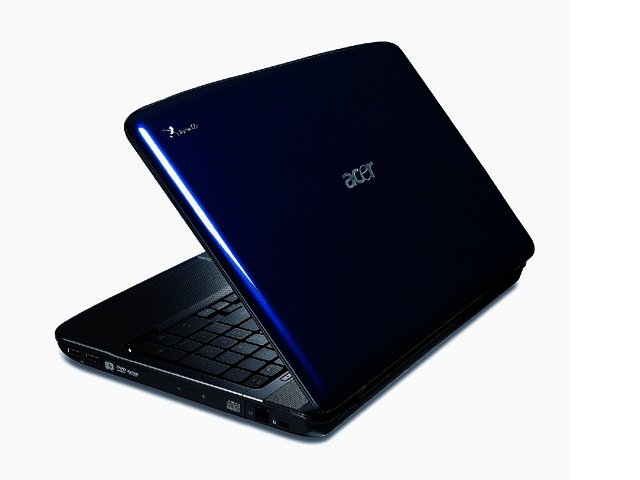3D movies have made a big splash at the box offices this year with releases like UP 3D and Final Destination 3D. They\'ve excited fans and brought new life to an ailing industry. So when are we going to see 3D in our homes?
Well, the Acer Aspire 5738G is a 3D notebook that is already available in South Africa. Going to a movie is a once off, small expense though; buying a 3D notebook is a slightly bigger commitment. When we first encountered the Acer Aspire 5738G notebook with its 3D capable display, we were rather sceptical. Two problems immediately sprang to mind: 1) it’s going to be expensive and 2) near pointless to buy as there is a lack of readily available 3D content.
Hardware
We were surprised to find our suspicions were, for the most part, unfounded. Although the Aspire 5738G isn’t cheap, it\'s well priced for what you\'re getting. It offers a 15.6" polarised panel, 2.0 GHz Intel Core 2 Duo P7350 CPU, 4 GB of RAM, a 500 GB hard drive, and an ATI Radeon Mobility HD 4570 GPU.
With its sharp multimedia focus the 5738G also comes with built-in speakers featuring a Dolby optimised surround sound system. While decent the sound didn\'t blow us away. A super multi-drive, full keyboard and HDMI port complete the 5738G\'s solid hardware offering.
3D Mode
Acer also saved on expenses by using a rather novel 3D technology that requires clear polarised glasses, a polarised display, and TriDef software. This alternative 3D system negated the need to use a supremely powerful and ridiculously expensive GPU like Nvidia’s 3D Vision. The use of TriDef software is the most interesting bit about the notebook, since this cleverly allows you to view standard 2D content in 3D mode.
While viewing original 3D games and movies (some came preloaded) is more impressive, your old library is given a new, 3D lease on life. We did find viewing 2D content in 3D mode a case of trail and error however. When watching videos we got the best results from WMV and AVI formats.
Before attempting to play games on the notebook in 3D mode it is advisable to visit the TriDef forum to find information on where to download drivers to get your game content popping off your screen, but only content supporting DirectX 9 and up can be converted to 3D. Keep in mind that the notebook is not a gaming rig, so performance won’t be phenomenal.
Issues
The Aspire 5738G didn’t fail to impress us, but we did encounter a few issues. Viewing the display from even a slight angle will distort the picture. Consequently, two or more people will find it difficult to view content together. Another issue is the quality of the glasses packaged with the device. They felt plasticky; a drop or accidental collision with a bum would send them into a state of disrepair.
We did find that the novelty of a 3D notebook wears off rather quickly with the schlep of having to put on glasses whenever you want to switch over to 3D mode. Battery life was also disappointing. We enjoyed no more than two hours of normal use.
Conclusion
These issues aside, the Aspire 5738G is a fantastic notebook, representing another technological hurdle that\'s been crossed. The idea of having a notebook capable of displaying 3D content, never mind doing a decent job of converting 2D content to 3D, was unthinkable a few years back. Buying one for R10 000 was unimaginable until now. While the glasses are still a bother, 3D is now a technology that is almost accessible.
[Note: We reviewed the Acer Aspire 5738G, but the Acer Aspire 5738D is what\'s currently available in South Africa for R10 000. The configurations of these notebooks do vary.]





